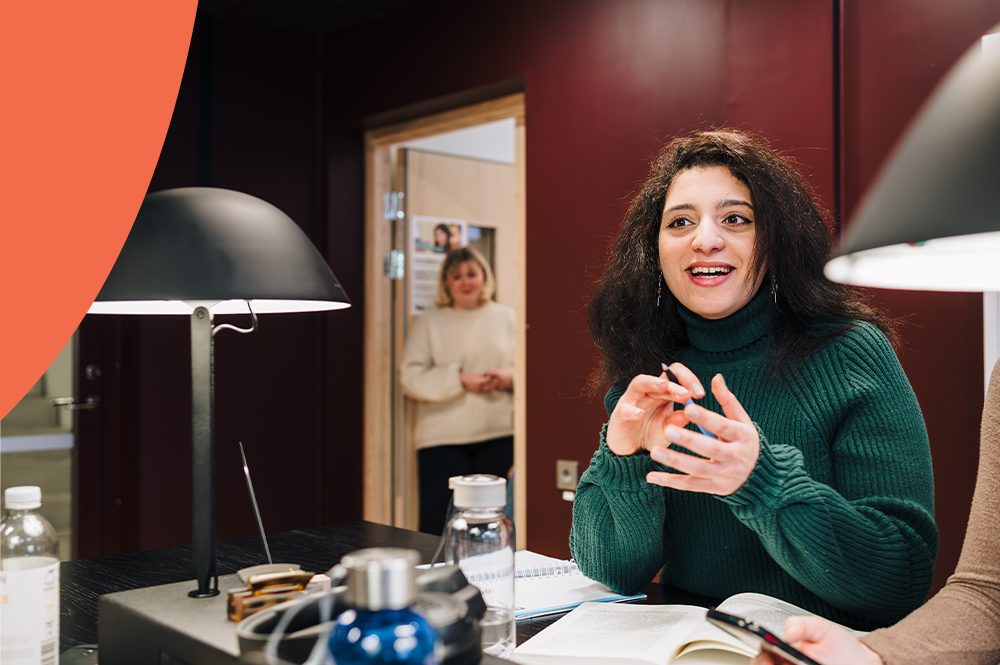Get involved
Being a student isn’t just about studying, it’s more than that. As a student, you can get involved in many different ways, whether you are here for an exchange semester or are taking a longer programme. A commitment is a good way into student life, especially if you are a new student in Sweden.

Institutions of higher education welcome committed students, and you can be active in different student associations based on your interests. These may be to do with sports, music, culture, stage productions or similar, but also student organisations such as student unions and sections where you can get involved in issues concerning your education and your higher education institution.
Why get involved?
Many who choose to study at a higher education institution are attracted by the prospect of student life and social interaction - the chance to meet and create memories with new people. As a new student, there’s a lot that’s unfamiliar and there are many opportunities you can take advantage of. Dare to try new things! Get involved in different associations or organisations, you might find something you weren’t expecting. It’s a great opportunity to meet new people, maybe from outside your normal circle of acquaintances. If English isn’t your native language, having a commitment outside of your studies can also give you the opportunity to further develop your language skills.
Get new perspectives on student life
As a committed student, you have the opportunity to get a completely new perspective on what student life means. You can pursue issues you find important and interesting, or just try something new. You get to experience student culture, attend formal dinners, be part of a group that arranges major events that benefit other students and much more.
By engaging in student life, you also get a break from studying. Maybe you need to go to a meeting, prepare for an event or do something with the rest of the group. As an active student, you also develop as a person. You encounter new contexts and challenges, meet new people, get more responsibility and have different expectations placed on you.
Sustainable commitment
Being an active volunteer in a student union, an association or similar is fun and good for personal development but can also sometimes be tough and challenging. While it can be difficult to find the time for both studies and a commitment, being involved in something you are passionate about can give you energy, and you also get to participate in an enjoyable social context.
In order for you and your group to be sustainable, it’s important that you discuss expectations on commitment levels, for the group and for you as an individual.
Questions to discuss in the group:
What are the goals of your assignment? What expectations do you have on you as a group and on what each group member should contribute? Is there enough time for the goals you set? Do you have a reasonable level of ambition? How can you see and help each other set boundaries and say no when things get too demanding in terms of content and time?
A joint discussion is important, after which it’s important that you take care of yourself during the period of your involvement and give yourself the opportunity to meet your commitment. What does your assignment consist of? Is the scope of the assignment reasonable in relation to the demands of your studies?
What to do when involvement gets overwhelming?
- Set aside time for your commitment.
How much time do you need, how much time can you spare, and where does it fit in your weekly schedule? Schedule a time each week to evaluate and plan ahead. - Book in time for recovery.
It’s important that you have time for uninterrupted recovery, where you can let go of anything that requires performance. - Say no!
It can be hard to say no to a fun assignment or to helping someone else, but you may not have the time or the energy at that moment. In the end, it may be too much for you. Prioritise what is most important and what will make you feel good in the long run. - Look after yourself!
Eat well, make sure you get the sleep you need, stay active, spend time outdoors so you get daylight.